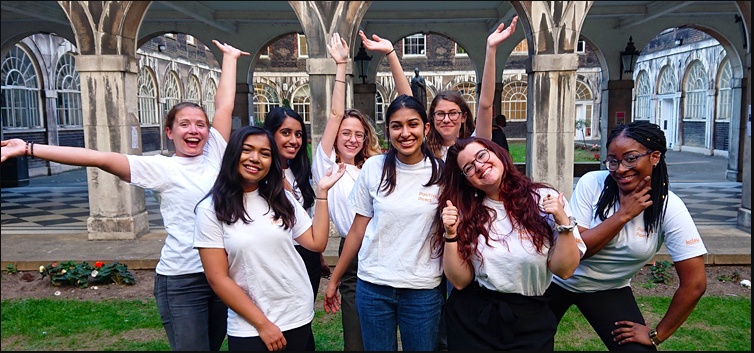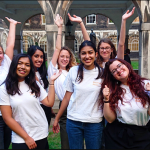
Hello everyone! I hope the sunny weather has been treating you well. It’s that time of the year, the time for BBQs, adventures, and making the most out of the sunlight hours. This month I’m here to talk to you all about second year – what were the best bits? What would I have done differently? What are some tips for the upcoming second years? Keep reading to find out!
Best bits
Second year has definitely been my best year yet, and I owe a lot of it to getting more involved with things happening around the university! This year has been really fascinating since we were able to choose some of our modules. I’ve also had the best time working as part of the SMaRteN student research team where I’ve learned so many cool things while meeting some of the most interesting and fun people. Another massive highlight for me has been getting involved in so many volunteering events with the Positive Peers events, it’s been so rewarding to work on the mental health outreach initiatives and I’ve learned so many useful things for my future work in psychology! To top it all off, I am currently completing my internship at Maudsley Simulation and it has been such an eye-opener in terms of applications of my degree! I’ve had the most amazing time learning from such different types of professionals, as well as gaining a better understanding of work in psychology outside of academia or clinical contexts.
Looking back – what would I have done differently?
This year was INTENSE in the best way possible, which meant that planning work was a crucial factor to ensure that I was able to do everything to my best ability. There were a couple of times that my planning abilities slipped a little, but hey, we’re all human! If I did it all over again, I would definitely try to spend more time on my coursework to prevent last-minute stress. Obvious points aside, I think the main change I would have made would be to think about my next steps more strategically. Many postgraduate courses require specific work experience, and second-year can be a great time to do that since you’re not running around completing your research project. I would’ve liked to get more involved and volunteer in some clinical settings during the year, but it wasn’t the end of the world! I still scored a super exciting internship with Maudsley Simulation where I’ve been able to put the skills from my degree to practice.
Tips and tricks to ace your second year
Coffee, coffee, coffee! And friendships with a 3rd year who can guide you through the journey. Second year will put your organisation skills to the test, but it will also be super exciting as you get to pick modules that are more relevant to your interests. There are 3 main pieces of advice I would give any upcoming second years. Firstly, get involved! Try to get some work experience or volunteering done throughout the year. You can take part in a research studentship run by the department, or try to find other research or work opportunities to boost that CV. You will really thank yourself when you go into third year without the worry of building a CV while you’re studying, plus, it’s a great way to network and learn from really cool people in your field of interest! Secondly, be strategic about your module choices. At the end of the day, all the modules are going to be interesting, so make sure that you give it some thought in terms of what is best for your future as a psychologist (if you want to go into the field of neuroscience, it will probably be more beneficial for you to take a neuroscience module than an organisational psychology module), but also what is your best chance at doing well in those modules (if you usually do well in coursework, choosing a coursework only module might give you a better chance!). Finally, take time to organise your work, and in that plan, make sure to schedule in some breaks! First term in second year can get quite intense, so I really recommend giving yourself a strict work schedule that also leaves you with time to disconnect and rest at the end of the day. Many people seemed to really thrive working 9am-5pm every day and giving themselves weekends and evenings off, whatever you do, make sure it works for you!
That’s all for my update this month, and now, back to your regularly scheduled summer programming!


Leave a Reply